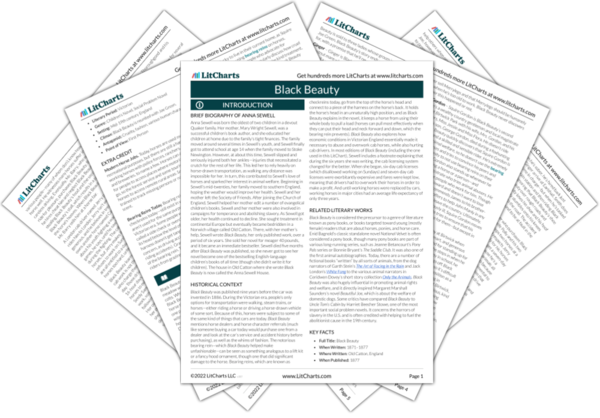Black Beauty introduces a lot of nuance in this passage. He’s acknowledged in the past that getting Sundays to rest has helped his health, as has Jerry’s exceptional care—but he also can’t ignore that the cab work is harming his body. Then, he also recognizes that Jerry’s kindness can’t ensure that he goes somewhere pleasant, and being older and less healthy makes him a less desirable horse anyway. In this way, Black Beauty shows how he's becoming increasingly vulnerable as he ages and wears out.
